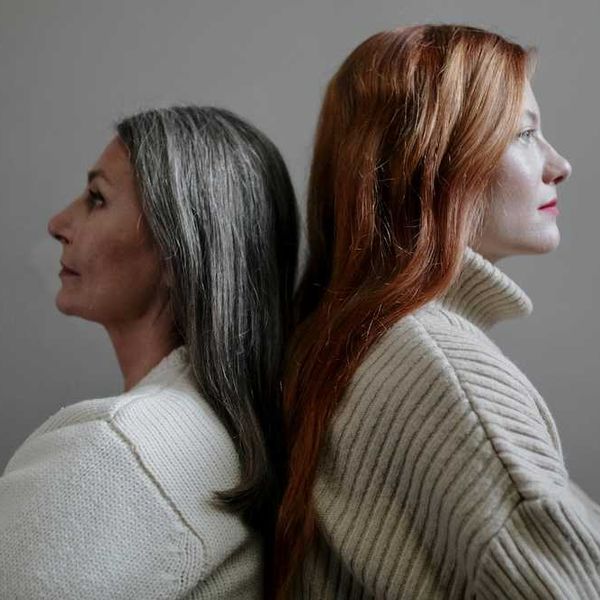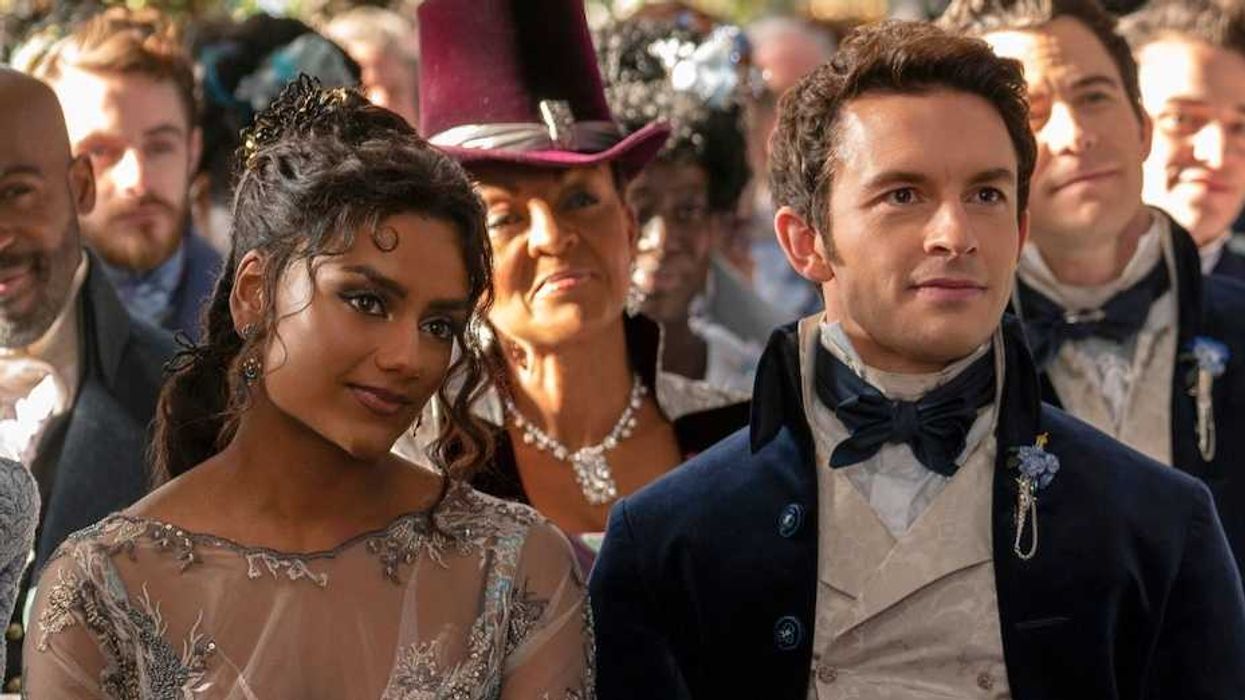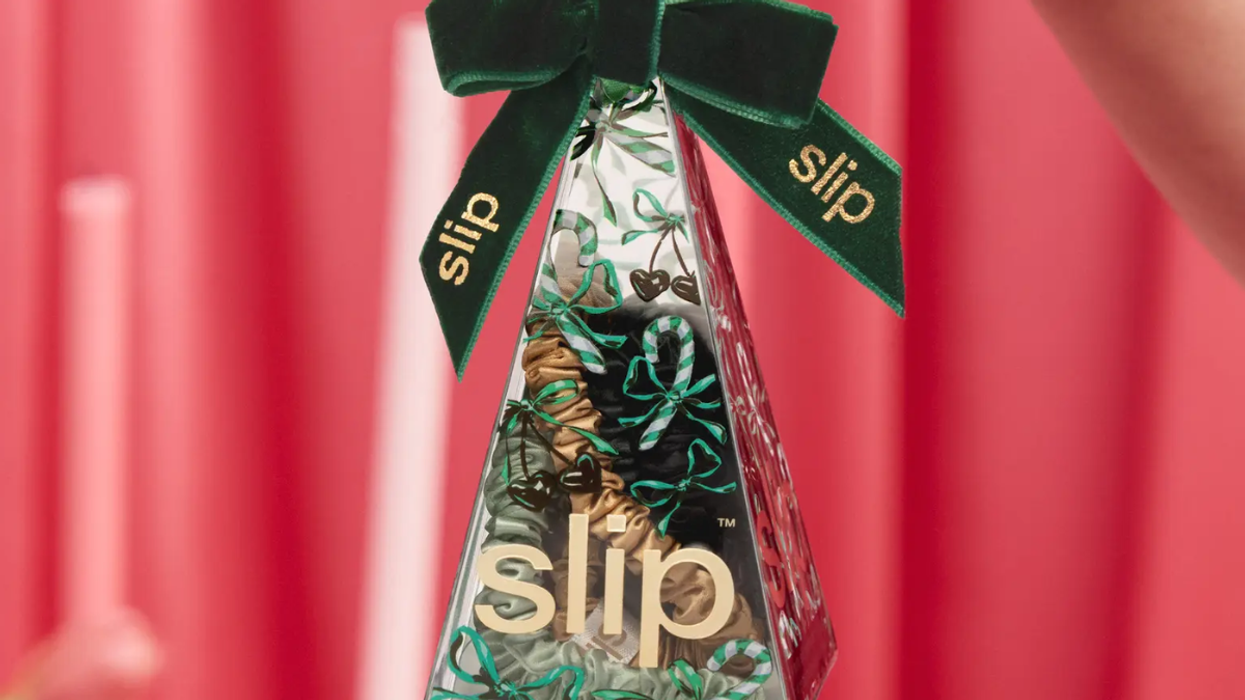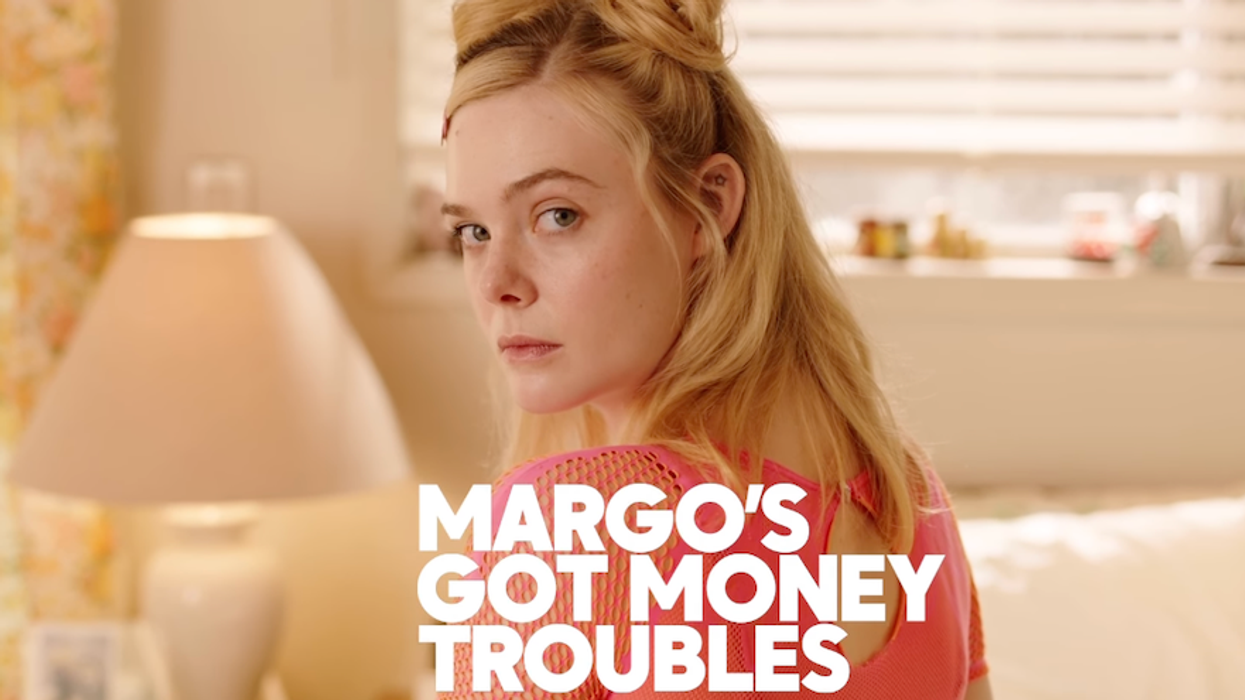Well, *that* was awkward.
Here's How To Be Less Awkward This Holiday Season
Theresa Gonzalez is a content creator based in San Francisco and the author of Sunday Sews. She's a lover of all things design and spends most of her days raising her daughter Matilda.
Awkward silences on a first date. An embarrassing encounter at the office party. A cringe-y moment with family around the holiday table. We’ve all been in awkward situations that leave us ruminating for hours about what we could have said or done differently to make it less awkward. But trying to be less awkward may make you more awkward," says Henna Pryor, a Philadelphia-based workplace performance expert and award-winning TEDx speaker. In her new book, Good Awkward: How to Embrace the Embarrassing and Celebrate the Cringe to Become The Bravest You, Pryor suggests a mindset shift that can turn awkwardness into our greatest asset for professional and personal growth. So here's how to be less awkward by being...good awkward?
3 ways to avoid saying or doing awkward things during the holidays
First things first, what is good awkward? To answer that, Pryor starts with separating the good from the bad. “Bad awkward is when we experience the emotion of awkwardness and it keeps a grip on us. It makes us freeze in place, or it discourages us from taking that action the next time, raising our hand, putting ourselves in that room. We ruminate on it for hours in the shower.” Sound familiar? SAME.
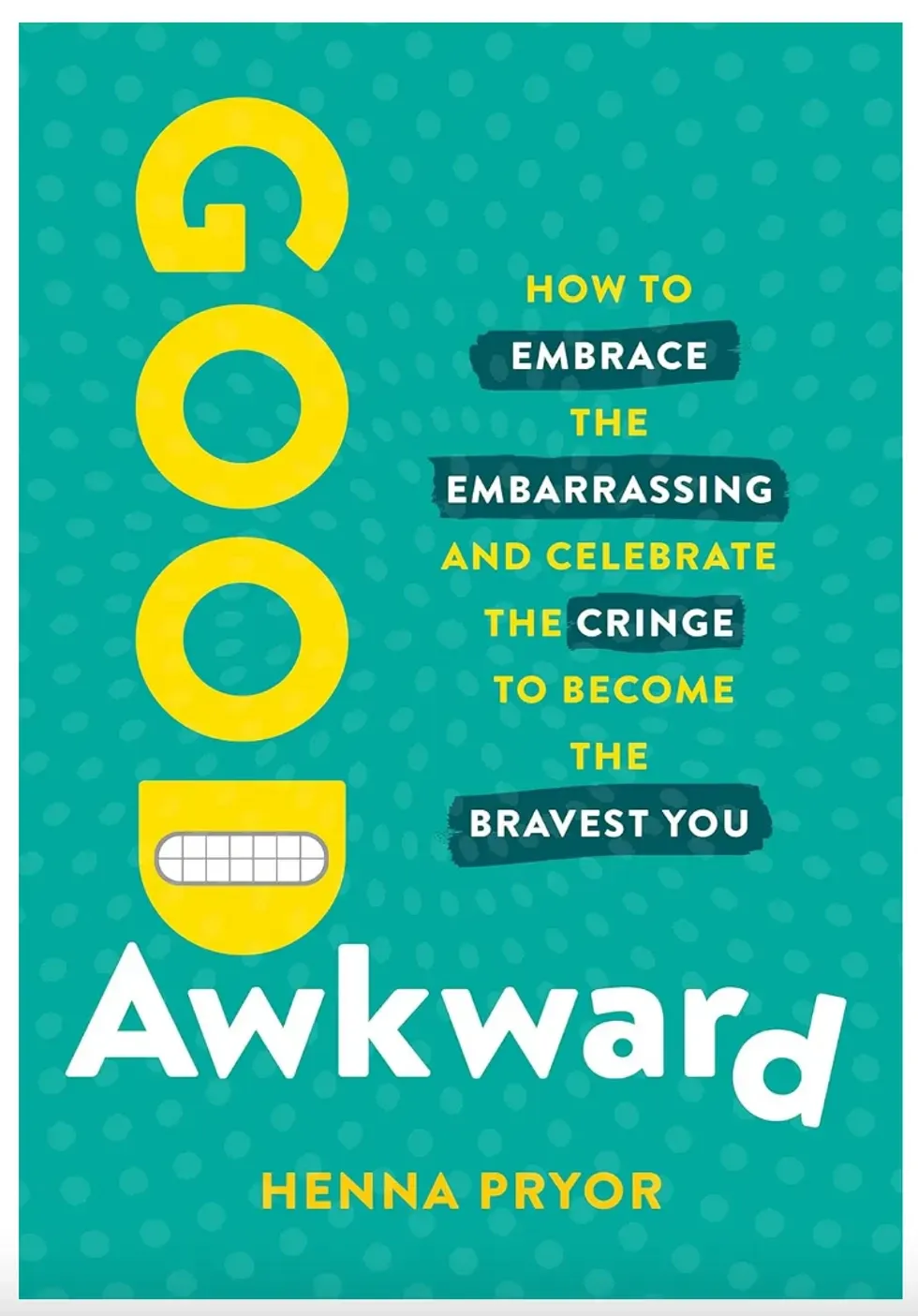
“Good awkward speaks to this idea that a degree of risk-taking is required in order to grow and improve our circumstances or advance at work and in life," says Pryor.
But getting good at embracing those moments of awkwardness takes practice. "Awkwardness is a social emotion,” says Pryor. “We don't feel it when other people aren't around.” The holidays are the perfect time for flexing that muscle. We’re meeting new people. We’re facing family conflicts. We’re talking politics with more people who aren’t in our bubble. We’re having more social interactions at work and seeing relatives who may not always see our point of view.
Here are ways to survive holiday season awkwardness and face it with confidence and grace:
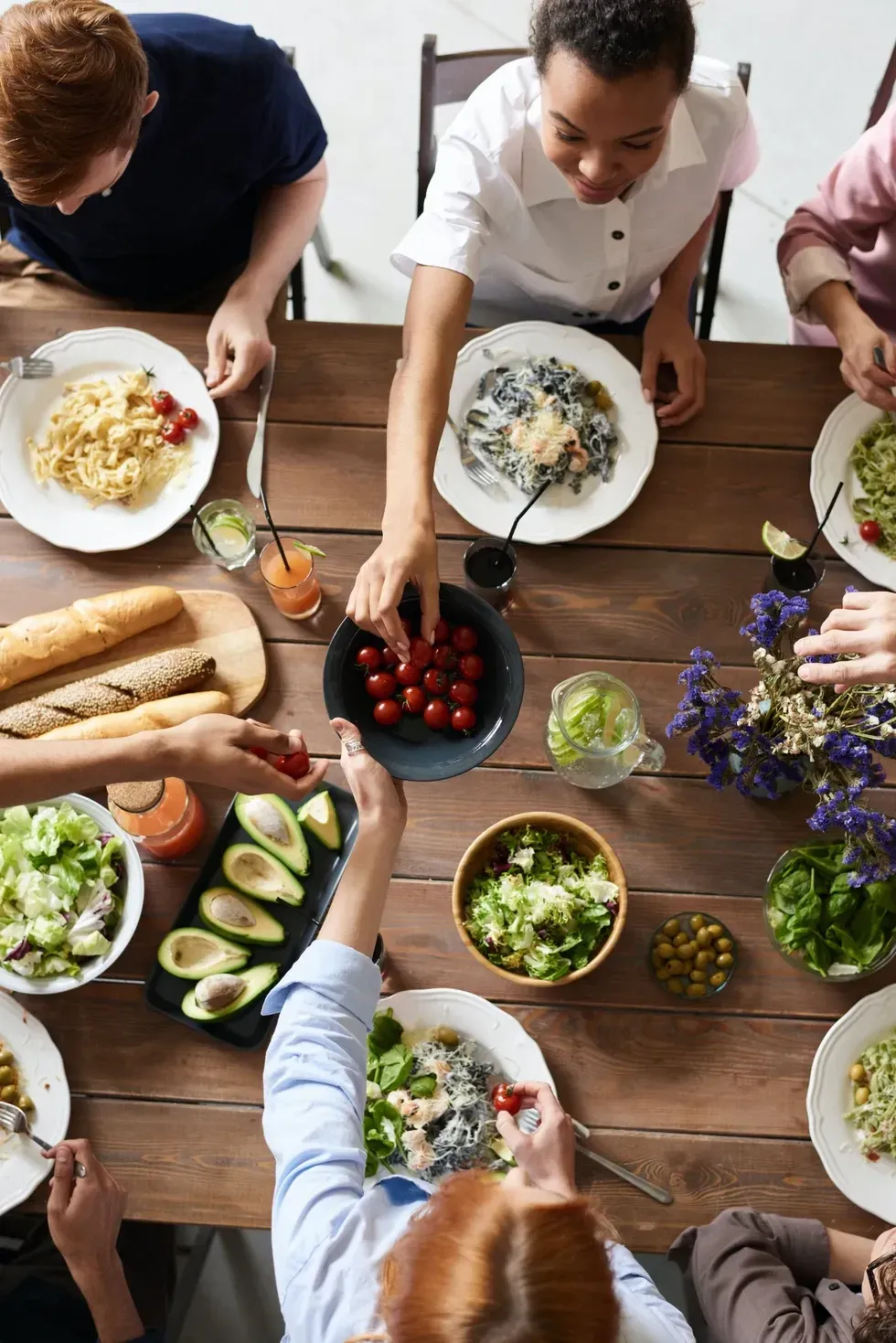
Photo by fauxels
Calibrate your expectations.
"You don't see these people all year long oftentimes, so there's a degree of uncertainty that if we can anticipate it and level set our expectations, it helps us go into it, says Pryor. Have some strategies to call on in the moment too. “The first thing is naming it,” says Pryor. “When no one says anything, the tension actually gets thicker. But if somebody can playfully go, 'Oh, that was awkward,' or kind of own it or name it, it actually diffuses the tension, everyone can relax." You can also strategically use humor. "We can have talk tracks to playfully change the subject or exit the room, but we need to mentally prepare for them so that we can have tools at our fingertips in the moment when we need them."
Flip the script.
To help build self-awareness around the emotion, ask yourself a few questions, like what are the childhood stories and narratives I tell myself? Are you thinking of your awkward feelings as a state or a trait? A state = "I feel awkward right now" (and it's something that will pass, and I can handle) vs. a trait ("I'm so awkward all the time"), which feels more permanent, and less easy to work with, says Pryor.
“A lot of times when we experience awkward moments, we just want to remove ourselves from the situation. We don't want to think about it anymore. But there's actually a ton of value in data after that moment has eventually passed, to thinking about why did that feel so cringey or awkward or embarrassing to me? What does that represent?,” she says. Pryor uses a personal and relatable example to illustrate this point.
"I grew up in a South Asian household where my parents would often say an expression that means, 'What will other people think?' There was a lot of that constantly, so peel back the layers, understand what are the stories you're telling yourself." That awareness can help alleviate the negative self talk that happens post-awkward situation.

Play back a redemptive story.
Citing research from Professor Dan McAdams at Northwestern University, Pryor says we can tell ourselves contamination stories or redemptive ones. “You can't control your first thought, but you can control your second one," says Pryor. It's natural to think 'Well, that was awkward or that was embarrassing. And that's OK. "Our second thought, however, can be to continue to ruminate or turn it into an alternative," says Pryor. A contamination story is, "Oh my gosh, I can't believe that happened. I'm never going to speak up at the table again with these relatives," or "I'm never going to contribute to the conversation."
Or you can turn it into a positive, which is, "'Well, that didn't go how I hoped, but I'm proud of myself considering I don't see these folks often that I contributed to the conversation, learned a lesson from it. The next time, maybe I'll handle it differently, but I spoke up and I'm proud because I don't typically do so.' Can you look for the gifts in the garbage of that situation?," asks Pryor.
Finally, recognize the universality of awkward moments. We all feel them, and we can’t avoid them. But by naming it, diffusing it (with humor or just calling it out), and reality-checking our emotions and self-doubt vs. letting it dictate our actions can help us breeze through them with confidence and ease.
“Look for the evidence and the facts,” says Pryor. “You can also ask yourself, "What else is true?" For example, "I may feel awkward right now, but I'm also having this conversation and that's a huge step for me and worth being proud of."
For more self-care and relationship advice, sign up for our weekly newsletter!
This post has been updated.




